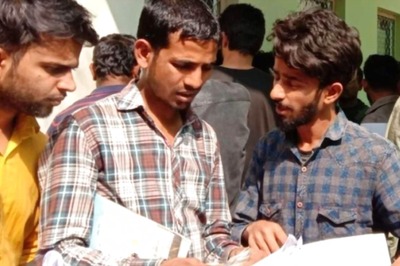
views
New Delhi: The Supreme Court on Tuesday directed the Chhattisgarh government to not to use tribals as special police officers in its Salwa Judum counter-insurgency operation against the Maoists.
Government-backed militias have fought Maoist guerrillas since 2005 as part of the 'Salwa Judum' or 'Campaign for Peace' in Chhattisgarh. It was part of an official plan to create a civil vigilante structure parallel to that of the Naxalites.
Authorities often involve tribal villagers to strengthen the fight against the Maoists who began their insurgency about four decades ago.
The anti-Naxalite movement initially started as a government-backed people's resistance movement against the Naxalites. The movement that was initially an uprising of local indigenous people in Chhattisgarh, was adopted by the state government to restore democratic rule to regions where the Naxalites had established themselves by force.
Over the years a number of SPOs or 'Special Police Officers' have been trained from amongst the state's tribal population. But according various human rights agencies, far from being a peaceful campaign, the Salwa Judum activists are armed with guns, lathis and bows and arrows in their fight against the Naxals.
As the power of the Salwa Judum grew with bipartisan support in the state, reports of excesses was highlighted by the media, including people being forcibly picked up from their villages, forced migration and violence.
A report by an expert group of Planning Commission in 2008 said in many places local inhabitants formed resistance groups when the Naxalites severely interfered with their traditional life style. However these resistance groups were converted into vigilante groups sponsored by the authorities over a period of time.
While some members of this group are appointed as Special Police Officers, some of them are given arms training and are provided with fire arms. Often these vigilante groups fight with armed Naxalite groups making the tribals fight the tribals.




















Comments
0 comment